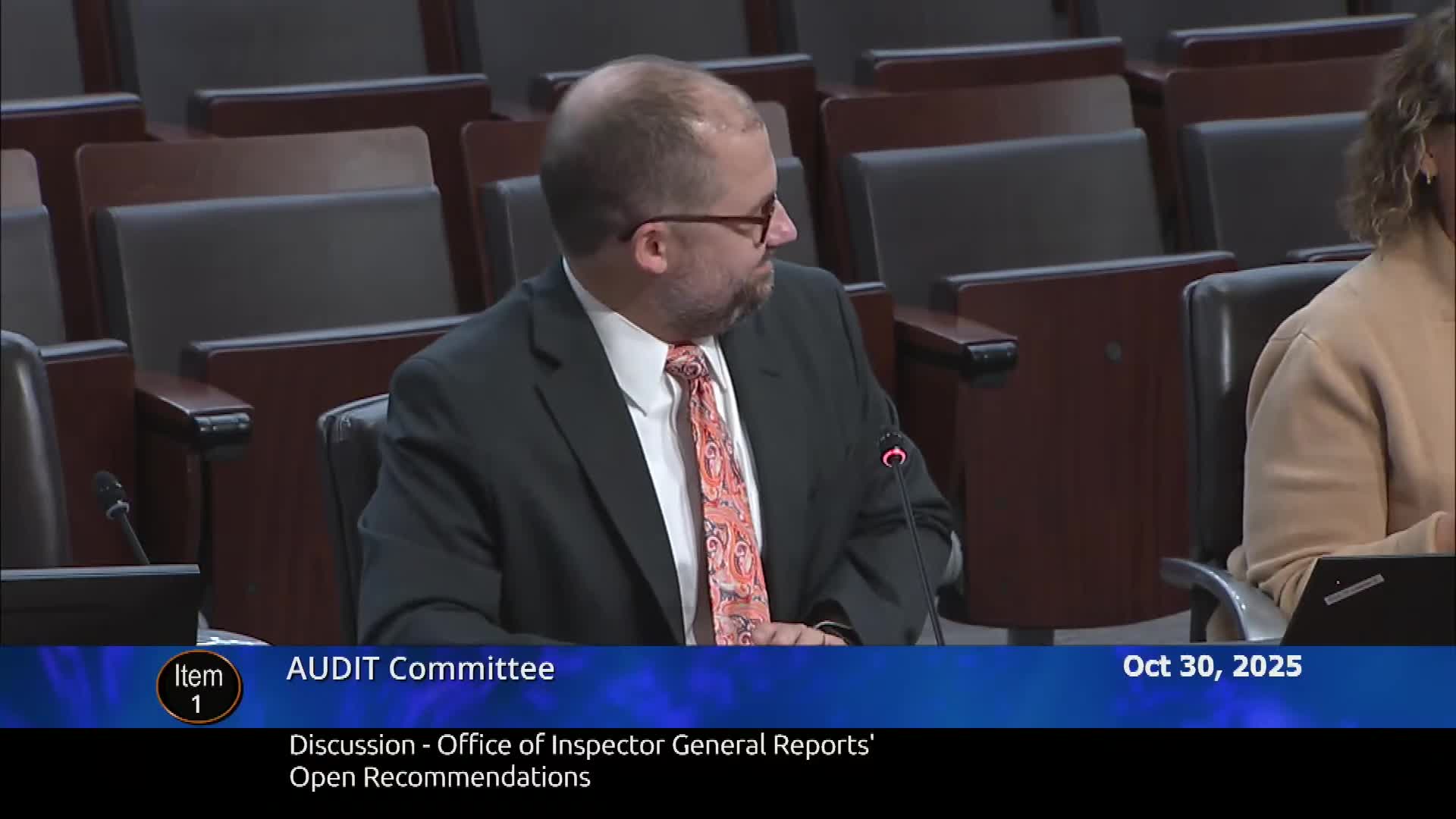Inspector general reports 18 engagements since Jan. 2024, cites staffing limits and proposes public tracking
Get AI-powered insights, summaries, and transcripts
Subscribe
Summary
Inspector General Meghan LaMarzee told the Audit Committee that since January 2024 her office has tracked 18 engagements covering 48 findings and 72 recommendations, and explained the OIG's 90-day follow-up process, staffing limits and interest in a public database to track overdue recommendations.
Inspector General Meghan LaMarzee told Montgomery County's Audit Committee on Nov. 2 that the Office of the Inspector General has tracked 18 engagements since January 2024 that produced 48 findings and 72 recommendations, and described the office's 90-day follow-up cycle for evidence that departments have implemented corrective actions.
LaMarzee said the office adopted a formal recommendation-tracking process in January 2024 and follows professional standards for government auditing, noting it either uses principles of the Association of Inspectors General or the Government Accountability Office's Yellow Book "as required by county code." "Every 90 days, we reach out to our point of contact from the department or at MCPS who we worked with during the course of our audit or review, and we ask for a status update," she said.
LaMarzee reported that about six engagements (roughly 33 percent) have been closed, covering 29 of the 72 recommendations; 43 recommendations remain open, and 12 of those relate to reports issued less than 90 days ago (including recent MCPS background-check and the Office of Racial Equity reviews). The OIG's stated target is to close recommendations within 365 days.
The inspector general told the committee the longest-open recommendations are in the police audit, at about 580 days, and that the average open time across recommendations is skewed by that long-running file. LaMarzee said some departments proactively submit supporting evidence with their responses, which lets the OIG close recommendations more quickly; other times the OIG receives inconsistent information and must seek follow-up.
Committee members asked whether departments push back against requests for information and what recourse the OIG has. LaMarzee said pushback is rare but that the police and certain audits affected by contract or operational changes can be challenging. She said she meets regularly with the county's deputy chief administrative officer and CAO and can escalate non-responsiveness to those offices.
The committee discussed increasing public transparency for overdue recommendations. Councilmember Friedson proposed a public webpage or database highlighting items beyond the 365-day target. LaMarzee said she has considered an up-to-date public database but lacks staff and one-time resources to create and maintain it; she noted requests to increase audit-division capacity have not been funded in recent budgets.
LaMarzee also briefed the committee on a handful of topic-specific updates mentioned in the packet: the short-term-rental report (transferred from the Department of Housing and Community Affairs to the Department of Permitting Services) contains several recommendations that OIG said are finance-related and may depend on adjustments to state law; a background-check follow-up for MCPS was due next week; and an audit related to automated traffic-safety functions and an ATU contract remains in follow-up as operations change.
LaMarzee said the OIG publishes a twice-yearly status of recommendations (a March report and an annual report included on Sept. 1) and that the office will return to the committee for follow-up in November. She asked the committee to consider resources needed to make OIG findings and outstanding recommendations more accessible to the public.
LaMarzee's presentation materials and detailed recommendation lists were included in the meeting packet; the OIG said attachments provide more thorough recommendation text and the closed items.
